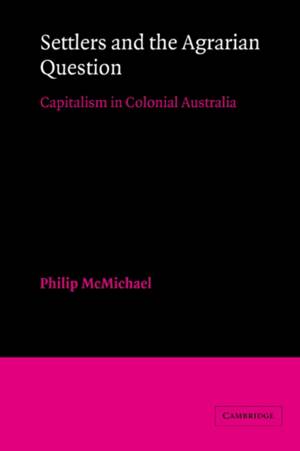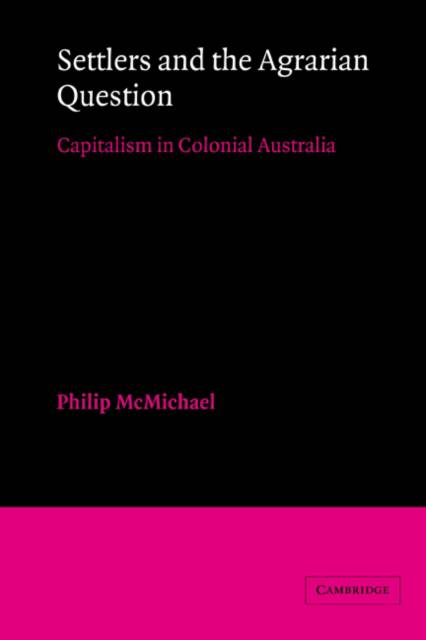
- Afhalen na 1 uur in een winkel met voorraad
- Gratis thuislevering in België vanaf € 30
- Ruim aanbod met 7 miljoen producten
- Afhalen na 1 uur in een winkel met voorraad
- Gratis thuislevering in België vanaf € 30
- Ruim aanbod met 7 miljoen producten
Zoeken
Settlers and the Agrarian Question
Capitalism in Colonial Australia
Philip McMichael
Paperback | Engels
€ 60,95
+ 121 punten
Uitvoering
Omschrijving
This book traces the formation of Australian colonial society and economy within the context of the changing fortunes of British hegemony in the nineteenth-century world economy. Australia's transition from conservative origins as a penal colony supporting a grazier class oriented to export production, to liberal agrarian capitalism, was not a simple reflex of imperial setting. Domestically, the 'agrarian question' - who should control the land and to what end? - was the central political struggle of this period, as urban-commercial forces contested the graziers' monopoly, of the landed economy. Embedded in the conflict among settler classes was an international dimension, involving a juxtaposition of laissez-faire and mercantilist phases of British political economy. Professor McMichael argues that the transition from a patriarchal wool-growing colony to a liberal-nationalist form of capitalist development is best understood through a systematic analysis of the effect of the imperial politicoeconomic relationship on the social and political forces within nineteenth-century Australia.
Specificaties
Betrokkenen
- Auteur(s):
- Uitgeverij:
Inhoud
- Aantal bladzijden:
- 324
- Taal:
- Engels
Eigenschappen
- Productcode (EAN):
- 9780521523165
- Verschijningsdatum:
- 23/12/2004
- Uitvoering:
- Paperback
- Formaat:
- Trade paperback (VS)
- Afmetingen:
- 152 mm x 229 mm
- Gewicht:
- 476 g

Alleen bij Standaard Boekhandel
+ 121 punten op je klantenkaart van Standaard Boekhandel
Beoordelingen
We publiceren alleen reviews die voldoen aan de voorwaarden voor reviews. Bekijk onze voorwaarden voor reviews.











